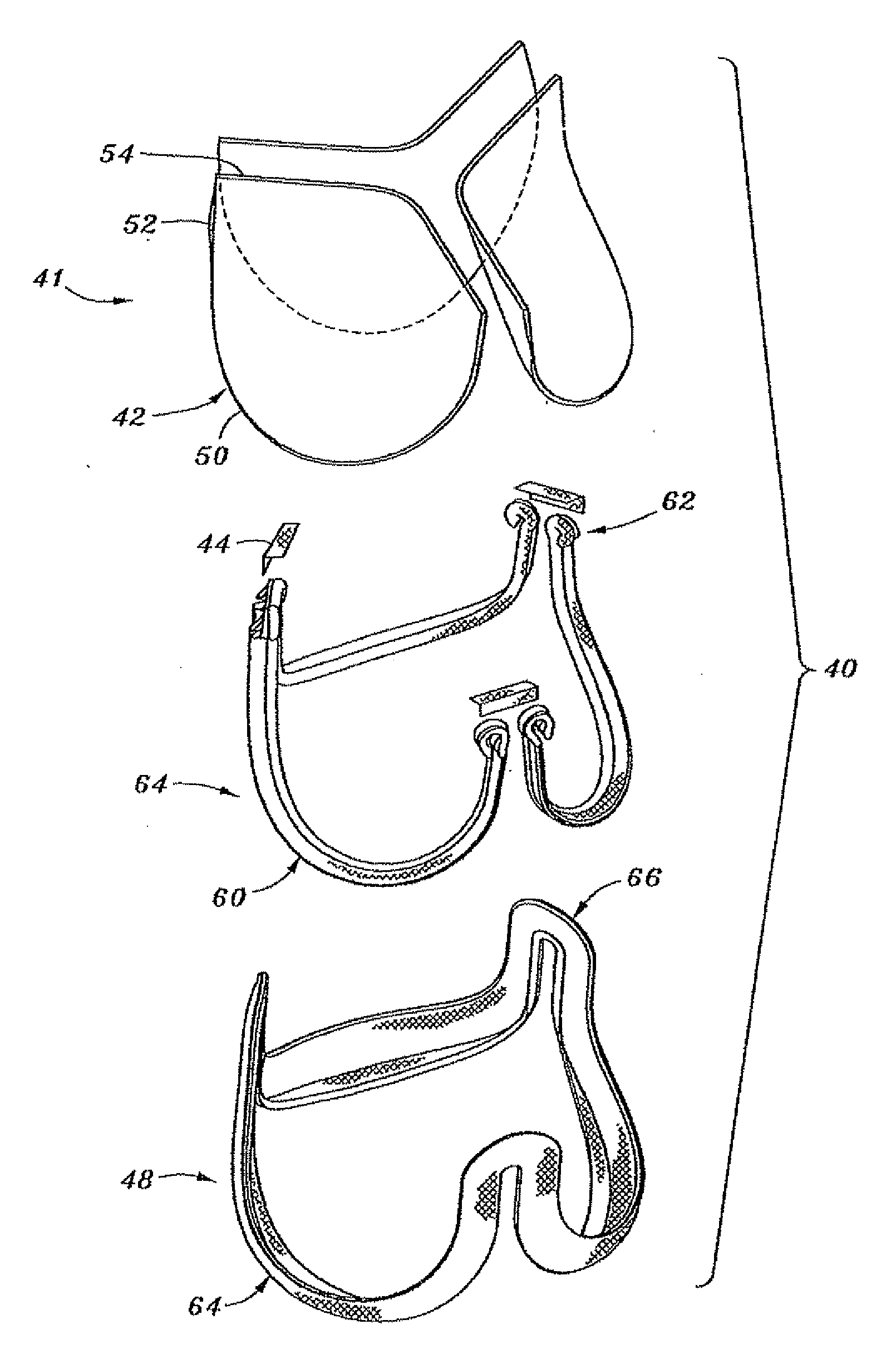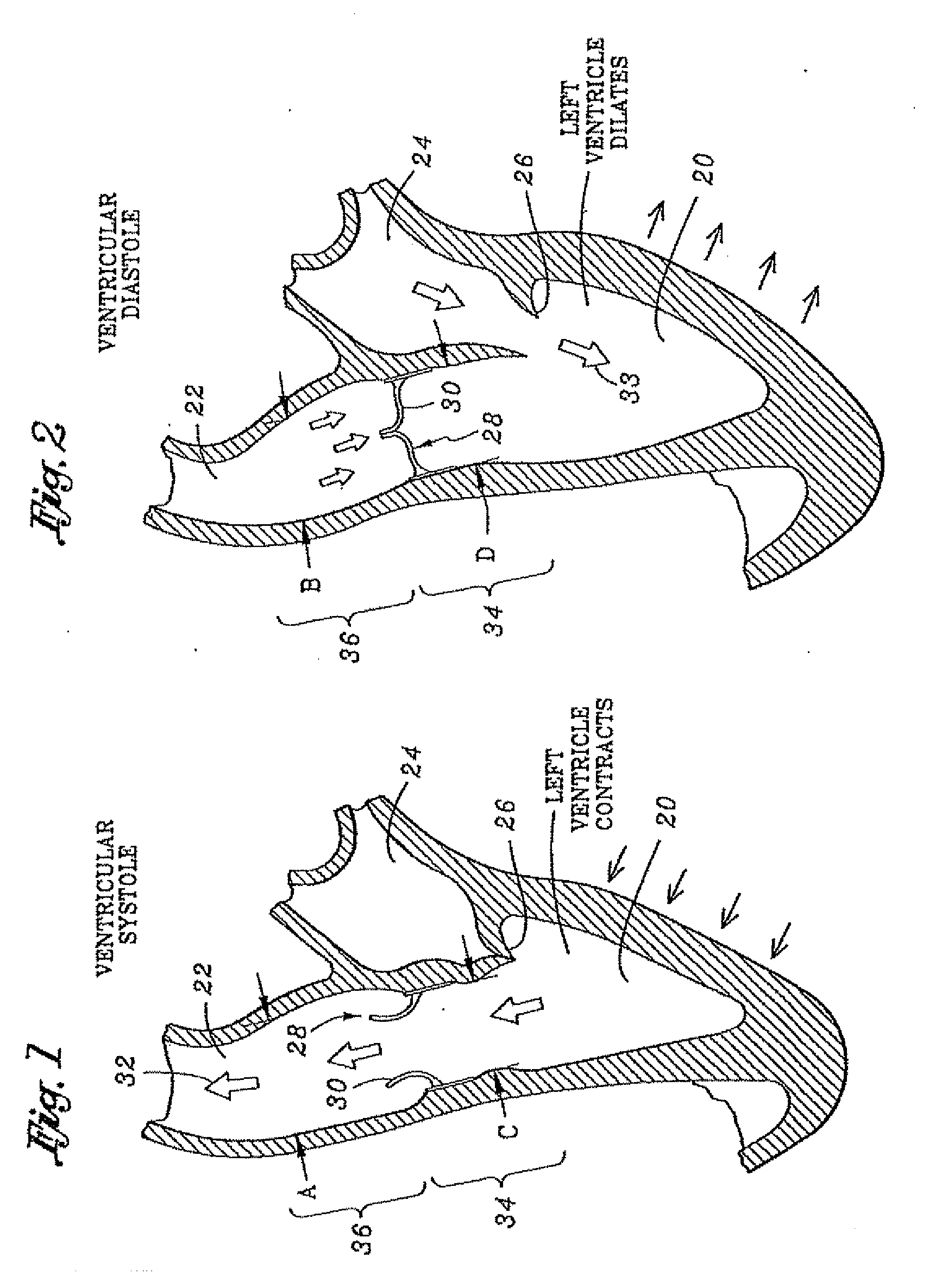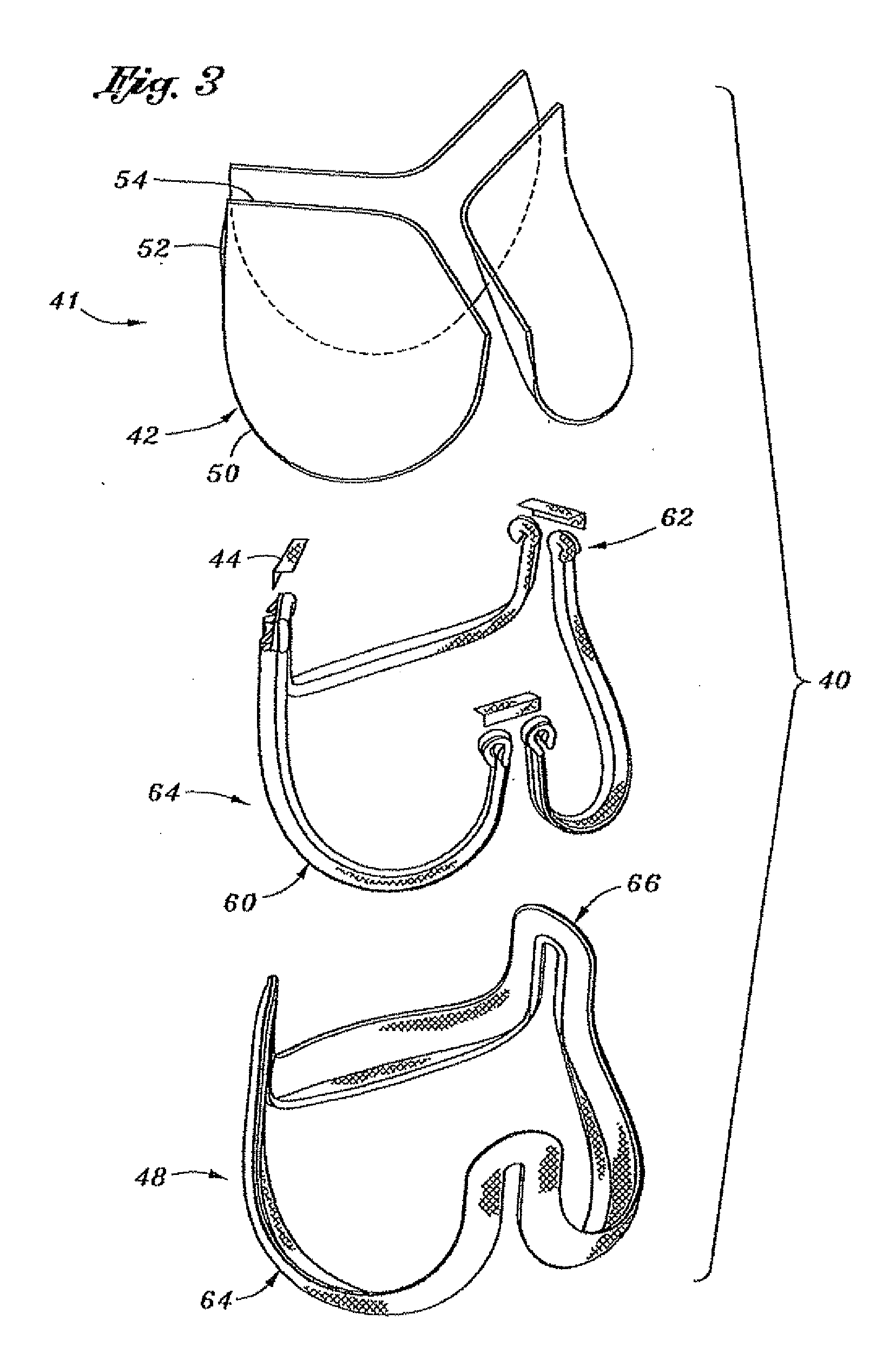Flexible heart valve and associated connecting band
a heart valve, flexible technology, applied in the field of prosthetic heart valves, can solve the problems of increasing the pressure drop therethrough, and achieve the effect of reducing the pressure loss
- Summary
- Abstract
- Description
- Claims
- Application Information
AI Technical Summary
Benefits of technology
Problems solved by technology
Method used
Image
Examples
Embodiment Construction
[0081]The present invention provides a highly flexible aortic heart valve that is attached generally along a scalloped or undulating perimeter downstream from where the natural leaflets were originally attached. The natural leaflets include arcuate cusp portions separated by common commissure portions. If the natural valve has three leaflets, and has a vertically oriented flow axis, the leaflets are evenly distributed circumferentially 120° apart with lower cusp portions and upstanding commissure portions. The commissure portions are connected between the cusp portions and are generally axially aligned along the aortic wall. The annular root of an aortic valve is composed of fibrous tissue and generally conforms to the undulating perimeter of the valve to support the leaflets. In this respect, implanting the aortic heart valve of the present invention involves excising the natural leaflets and attaching the prosthetic heart valve proximate the fibrous annulus, but also in part up th...
PUM
 Login to View More
Login to View More Abstract
Description
Claims
Application Information
 Login to View More
Login to View More - R&D
- Intellectual Property
- Life Sciences
- Materials
- Tech Scout
- Unparalleled Data Quality
- Higher Quality Content
- 60% Fewer Hallucinations
Browse by: Latest US Patents, China's latest patents, Technical Efficacy Thesaurus, Application Domain, Technology Topic, Popular Technical Reports.
© 2025 PatSnap. All rights reserved.Legal|Privacy policy|Modern Slavery Act Transparency Statement|Sitemap|About US| Contact US: help@patsnap.com



